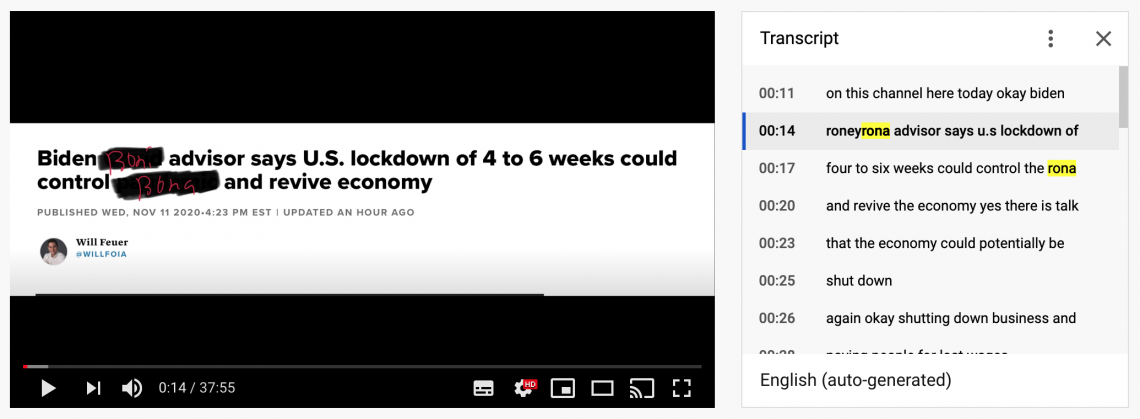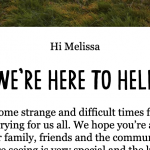In a normal world, content creation is all about getting your article/vlog/post associated with an existing and popular topic so your piece might show up in related searches and attract those much-prized visits, views or hits.
But it’s 2020 and nothing is normal.
With platforms increasingly vetting content around hot-button topics (COVID-19, US elections…), it appears some creators are going to extreme (and awkward) lengths to deliberately disassociate their content with trending topics.
Coming at this from an SEO point of view, this seems absurd. But it’s a helpful reminder that not everything online revolves around getting top scores with ranking algorithms. Sometimes you want to dodge them entirely.
Content creation used to be all about pleasing algorithms. Now at least some of it is intently focused on dodging them.
Heard of the “Roneyrona”?
In one overly-caffeinated corner of YouTube, investment vloggers like this guy are using these and similar phrases to stand in for COVID-19.
Speaking in code that the YouTube algorithm hasn’t yet hacked, they’re able to avoid special regulations and restrictions that are being applied to corona-related content.
This begs the question: If you’re producing content with high news value but don’t want it to be surfaced in relation to that particular news topic, then why produce it at all?
Answer: To keep your subscribers engaged, prove you’re topical and switched on, and to continue to satisfy any algorithm criteria around the frequency of your content publication.
Does this signal a change in the way content is being produced around hot-button topics generally?
Almost certainly not universally. Search traffic via newsworthy topics will continue to be the bread and butter for many news publications, tabloids and magazines.
But creators with a loyal subscriber base, especially those on platforms that are increasingly pressured to regulate content, are very likely to have to continue to skirt around controversial content to continue to reach their audiences.
If that game of dodge-the-algo continues to include inventing and incorporating new gibberish terminology, we may be in for a bit of a weird ride.
Say what?
Inventing a new vocabulary to avoid detection is not a new trick. We’ve probably been doing it for as long there has been language.
This may be only happening on the fringes of the web at the moment, but it is ironic that with Google, Facebook (Instagram), et al.’s very bid to become universal arbiters of information, they could end up pushing language beyond their own sense-making frameworks into (temporarily) algorithm-defying code.
Personally, I take comfort in knowing that humans can still defy AI with scrappy gibberish.
But if this does take off, I’m not looking forward to sifting through keyword data full of pig latin.






Comments by Melissa Byleveld